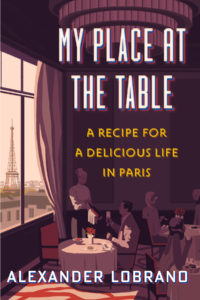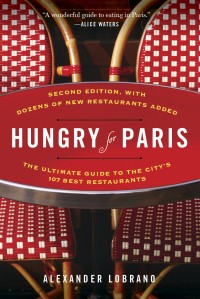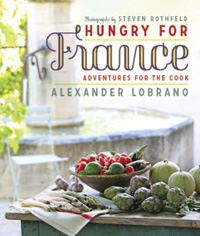Jòia, Paris | Hélène Darroze’s Terrific Comfort-Food Bistro, B+
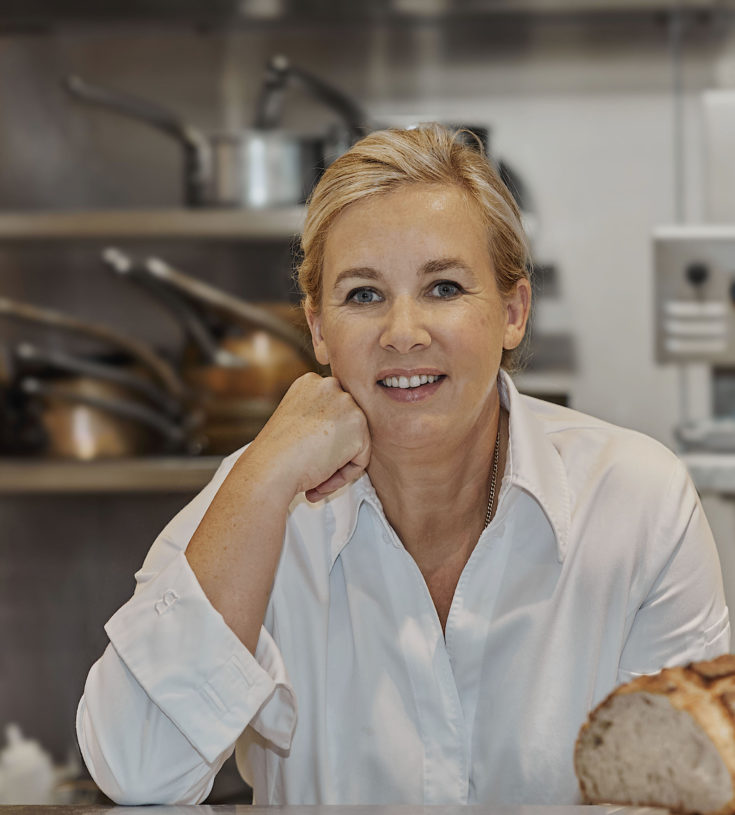
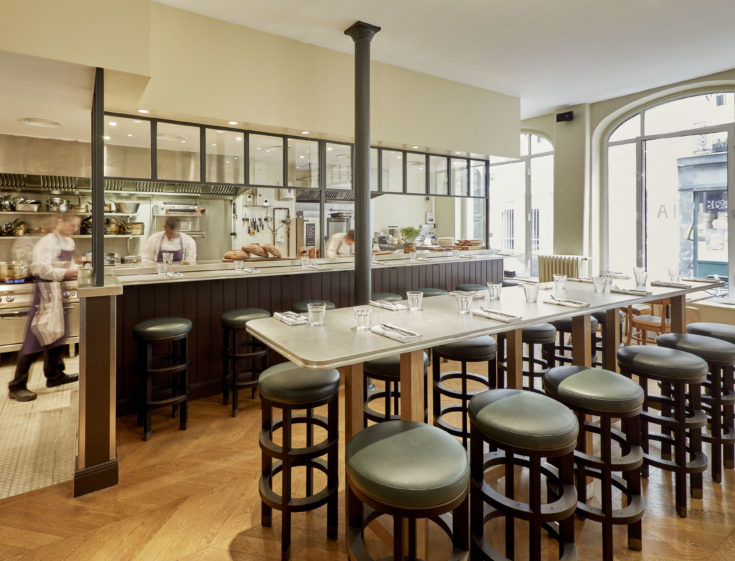
In the dialect of the Bearn region of southwestern France, Jòia means “joyous.” But ever since chef Hélène Darroze’s new restaurant by the same name opened in Paris, it also means great eating and good times.
“I found this space when I was looking for a new address for my gastronomic restaurant on the Left Bank,” Darroze told me and Bruno when we chatted with her across the counter that separates the counter seating in the dining room from the busy open kitchen where half the staff are women at dinner the other night. “It wasn’t right for my gastronomic table, because I’d been thinking I wanted to be somewhere in the 8th Arrondissement, but I fell in love with the space and decided to do a new restaurant-bar that would serve the kind of southwestern French comfort-food I make when friends come over for dinner. So this restaurant is about relaxing, sharing, and having a good time,” said the chef, who’s spending most of her time in Paris again, with just a few trips monthly back to London to oversee her Michelin two-star table there at the Connaught hotel. (N.B. Darroze’s gastronomic restaurant in the rue d’Assas is currently closed for renovations and is scheduled to reopen in Spring 2019).
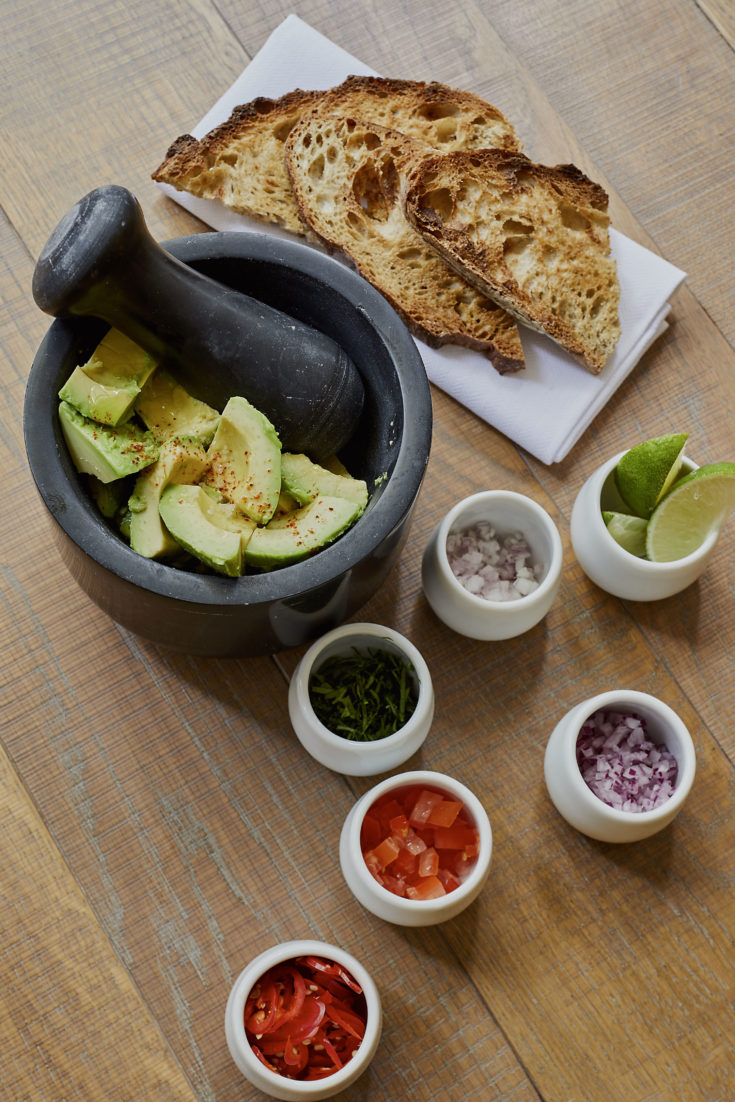
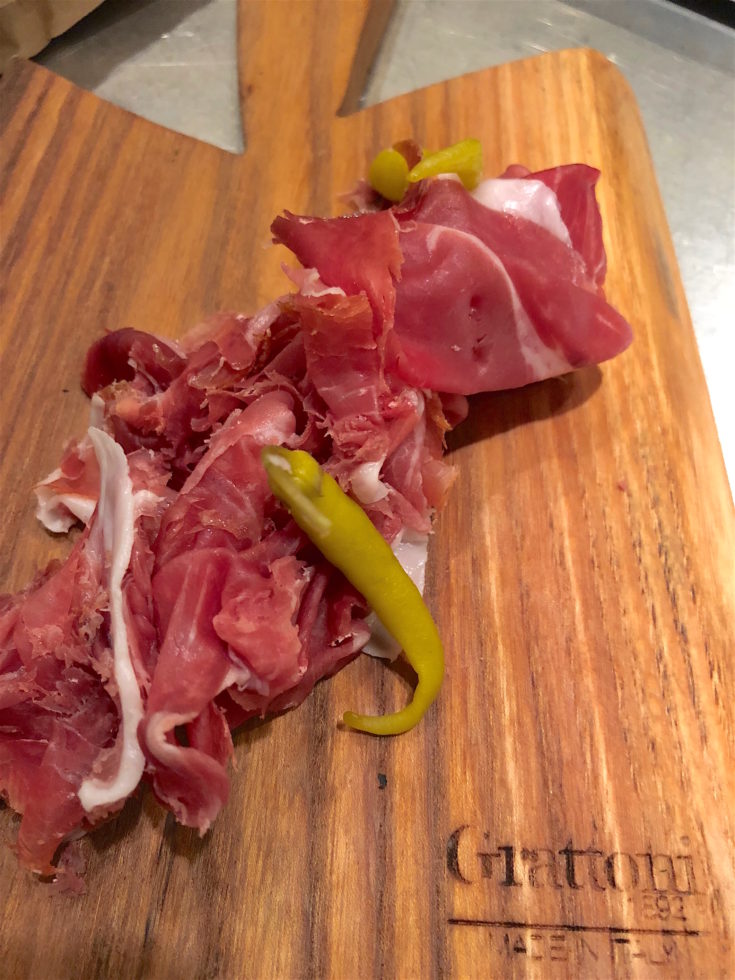
Over hors d’oeuvres of velvety jambon noire de Bigorre and mash-and-season-it yourself guacamole–a clever idea both for the resulting guacamole but also the restaurant theater, I explained to Bruno why I admire Darroze. To wit, after business school in Bordeaux, she ended up working in the offices of Alain Ducasse’s Louis XV restaurant in Monaco until the day when he came in and told her she had more business being in the kitchen than in front of a computer. This was doubtless because she comes from one of the most distinguished gastronomic dynasties in southwestern France, a family which ran an eponymous restaurant in Villeneuve-de-Marsan for more than a century.
So after a stint cooking in Monaco, Darroze took over the kitchens of her family’s restaurant and became the fourth generation to run them. She won a Michelin star for her food at the family table, but left to move to Paris and open her own restaurant in 1999 (the Darroze’s original restaurant in Villeneuve-de-Marsan is now closed).
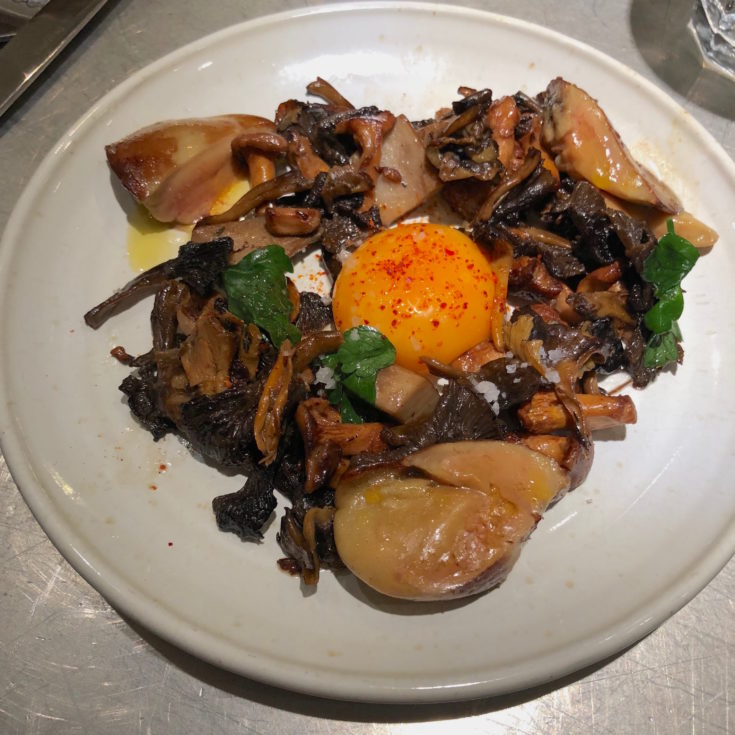
“She must have felt sort of intimidated when she started cooking,” Bruno said in response to my timeline.
“Perhaps, but I don’t think she probably had any other choice,” I replied, musing vaguely on a question that a young journalist writing about the New Yorker during the days that my grandfather was fiction editor there had posed to me during a telephone interview recently.
What he asked was: “Was it difficult for you to find your own voice and style when you had such a famous grandfather and also an aunt who worked at the New Yorker?” I didn’t hesitate. “No, not really, because my voice is mine, and the vector through which I’ve chosen thus far to express it has been food in the broadest sense of the word.”
Insofar as Ms. Darroze is concerned, her love of the foods and cooking of southwestern France is evident at all of her restaurants, but her style is quite different from the food I ate several times at her family’s restaurant before she took over the kitchen. To wit, it’s fresher and lighter, with more legible seasonings and shorter cooking times.
Delicious examples of Ms. Darroze’s style arrived with our first courses, a sublime creamy garlic soup made with l’ail rose de Lautrec (yes, that Lautrec, since the painter Toulouse Lautrec came from the same town), which is my favorite French garlic for being gentle but umami rich both cooked and raw, and my sauté of wild mushroom with foie gras and an egg yolk confit. This blissfully autumnal dish is one I could eat every other day for the rest of my life, because it’s such a perfect symphony of earthy tastes and textures.
Both starters paired beautifully with the wine our charming Italian waiter suggested, too–a Fontanasanta Manzoni Bianco from Italy’s Alto Adige region by winemaker Elisabetta Foradori. Interestingly, the entire wine list here is devoted uniquely to wines that are made by women, in France, of course, but also in Australia, Italy, Spain, and the U.S.
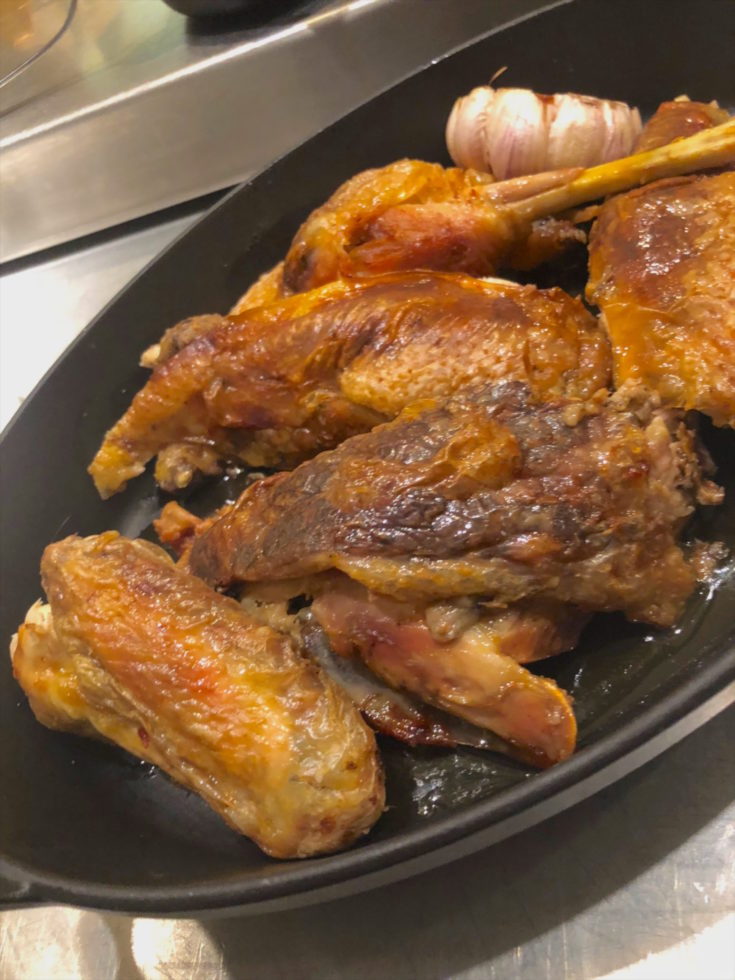
Among the main courses here, most are for two people, and since they were out of the beef short rib with a ‘ranchero’ condiment, we went with the poulet jaune from the Landes, which was roasted with a stuffing of brioche and foie gras tucked under its skin and served with several heads of baked Lautrec garlic as a garnish. With sides of ewe’s milk cheese enriched polenta and crunchy roasted potatoes, this was a Pantagruelian feast that left us both elated and deeply sated.
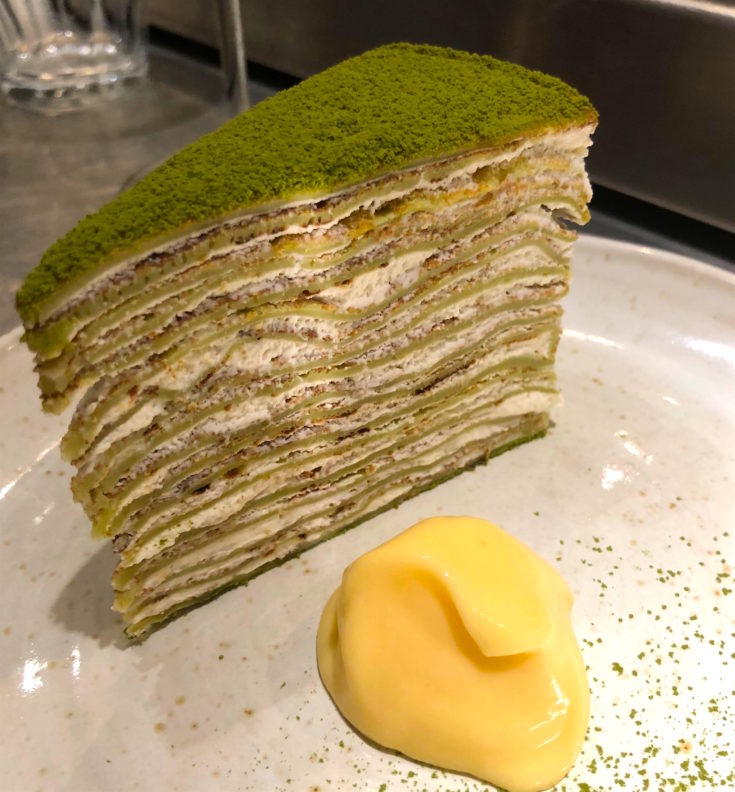
Dessert seemed highly unlikely under the circumstances, but the Italian waiter insisted we’d be making grave mistake if we we didn’t try the millefeuille of crepes with Matcha and yuzu cream, and since I’d been eye-balling it from afar all night, he didn’t have to work very hard to persuade me. It was hefty but wonderfully delicate at the same time.
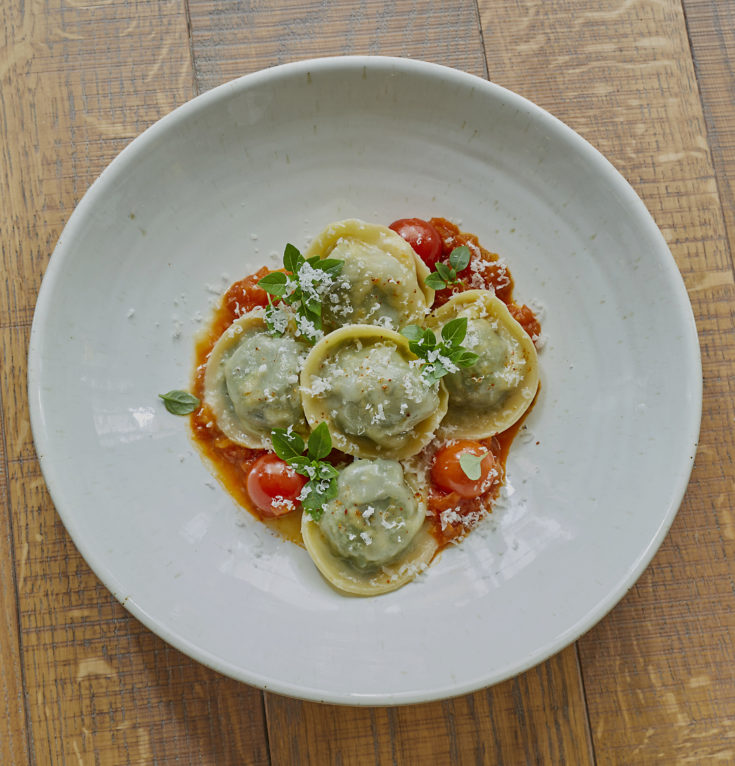
The next time I dine here, I’ll try the herb-filled ravioli, or maybe the roast hake with chimichurri sauce, the stuffed lamb’s neck, or the rouget stuffed with squid and mushrooms in a jus de bouillabaisse. But I know I’ll be back, because this is a very happy restaurant created by someone who not only knows and loves good food but who’s biggest pleasure in life is in sharing it.
Jòia 39 rue des Jeuneurs, 2nd Arrondissement, Paris, Tel. (33) 01-40-20-06-06. Metro: Grands Boulevards or Bourse. Average 60 Euros. Open Monday to Saturday for lunch and dinner, closed Sunday.

